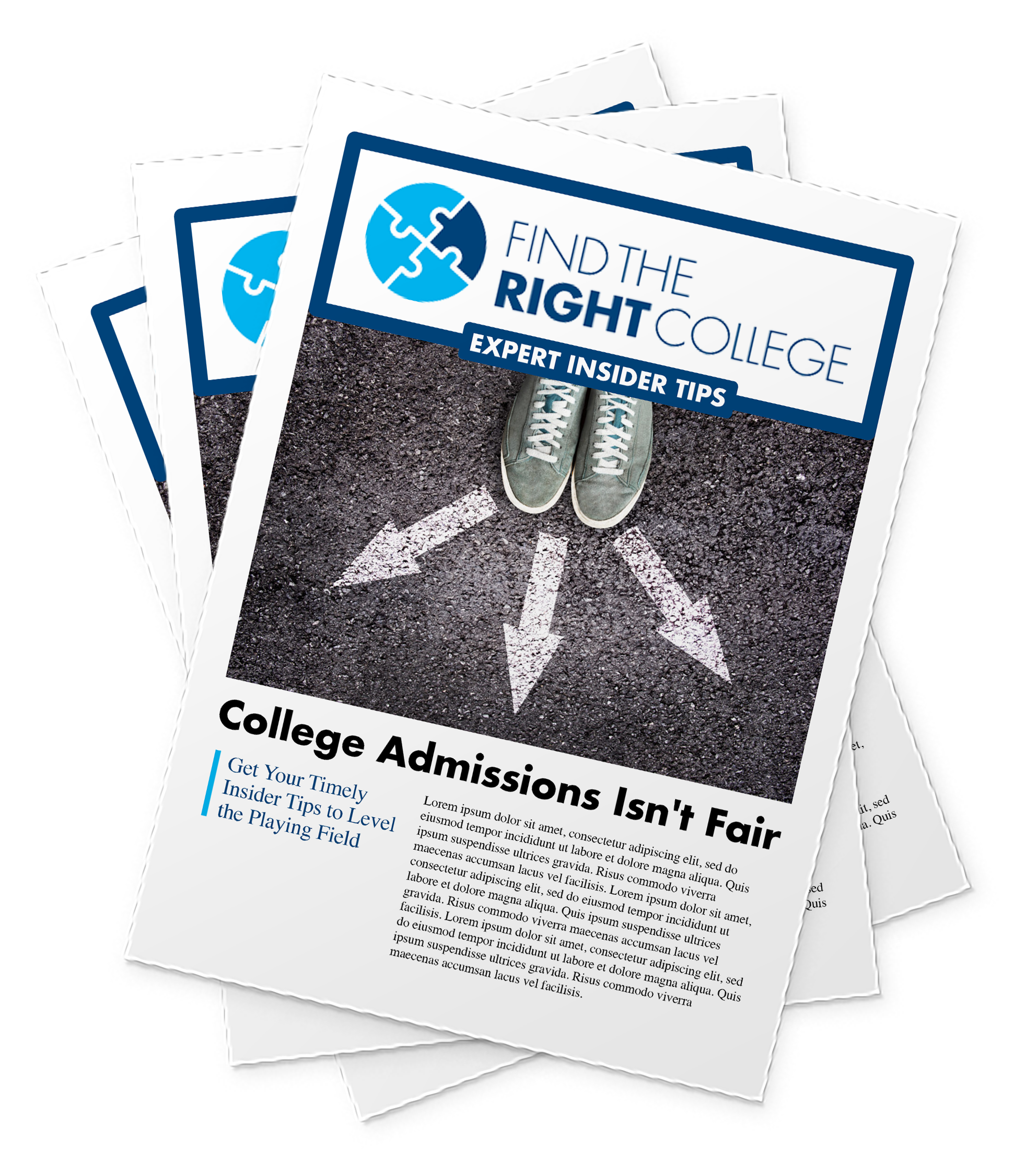A guest blog by Bill Shain.
When should I visit a college?
It’s not a bad idea to stop by a campus when you are in the area any time from Ninth Grade on, and take the official tour. However, in terms of the college admission process, your first set of campus visits should occur during spring break junior year, and continue through the summer. During the fall of senior year, try to schedule overnight visits in a residence hall at the schools which most interest you.
You will hear people say that you should try to visit colleges when school is in session. There is good sense behind this recommendation, because you can experience what the campus feels like in the most complete way. However, it is simply not possible to visit as many campuses as you will want or need to without using the summer after Junior Year extensively. And there are advantages to summer visits. Tours will typically be smaller than in the spring and fall, and it is easier to meet with admission staff to get questions answered. It is also usually easier to organize your family for college trips during the summer months.
Avoid Saturday visits as much as possible. They are generally the busiest visitor days for admission offices, and tours can be very large. You will find the smallest tours and information sessions on Tuesday, Wednesday and Thursday.
Ideally, you will visit only one campus a day. If schools are within an hour of each other, it is possible to visit two campuses the same day. This is not ideal, but can be realistic when you have finite time to get to a number of locations. Under no circumstances should you try to visit more than two campuses in a single day.
How do I schedule a campus visit?
Some schools request that you inform them in advance if you are planning a visit. This makes it easier for them to plan appropriate space for an information session and make sure enough tour guides are available. In most cases, you do this is on the web site of the admission office involved, though it can also be done by phone. For other schools, generally larger ones, you simply show up for a campus tour and/or an information session. What is offered on any given day varies during the year, so be sure you check admissions websites before planning your trip.
What should I do during a campus visit?
Always take the campus tour, and attend the admission information session. Schedule your campus visit when both these activities are available. If interviews are offered, try to schedule one, but only if you are visiting after the end of your Junior Year. Note that interviews fill quickly, especially in late summer and early fall, and thus you should request one at least ten weeks before you expect to be on campus. Make sure that you fill out a card in the admission office so they have a record that you visited.
Most campus tours will run about an hour, though some colleges now schedule them to run even longer. Tour guides also often run over the time they have been allotted. Information sessions are more reliably limited to sixty minutes. While only one information session is offered in a given time slot, you may find that there are several tours leaving simultaneously. Consider dividing the family, and agreeing that you will ask a couple of the same questions on your tour. One issue with campus tours is that the students conducting them have a great deal of latitude to choose what they say (and not all if it may be correct). Having information from more than one tour guide reduces the chance that you will receive partial, skewed or inaccurate information. You may find this article on campus tours interesting.
You should, however, spend another couple of hours on campus. No admissions tour covers the entire campus, and you might want to explore other portions of the campus. Explore the neighborhood immediately around the campus. Have a meal in the dining commons if it is open (admissions offices will sometimes pay for all or part of this if you inquire), and perhaps dinner in the surrounding town. If school is in session, pay attention to bulletin boards and information kiosks. Pick up any campus publications available for free distribution, and a copy of the local town alternative newspaper (almost every city has at least one). These will give you an idea of recreational and cultural options locally available.
As you wander the campus (on tour or otherwise), make an effort to notice actively what is around you. Do students seated together in the dining hall, or walking together on campus, all seem to share a single ethnicity or social orientation? Do people greet each other as they pass on campus? Do you notice an unusually large number of students eating alone or walking alone on campus? Does any portion of the campus or its neighborhood make you uneasy in terms of safety?
Make every effort to experience at least a few aspects of the area where the college or university is located. Try to make the visit interesting and enjoyable beyond its college admissions function. Walk a historic town, visit the seacoast, see a museum — do some of the things you would do if this were vacation time (which, in fact, it is).
And when you are done, perhaps in the car or plane when you are on your way home or to the next campus, carefully record your perceptions. College visits blue all to easily, and this is the only way you can accurately recapture your reactions months later when you will want them.
Some questions you might ask
Below are a number of questions you might consider using during a campus visit. However, there are other things which are undoubtedly important to you, so create your own as well. It is a good idea to ask each question several times to see if the response is consistent across the campus community.
Academic Questions
Ask current students:
- Who taught you in your first year and how large were the classes?
- How often are you unable to schedule a course you want or need?
- What was your best and most disappointing experience with a professor?
- How much do students study?
- To what extent are academic ideas discussed beyond the classroom?
- How up to date is campus technology? How good is access?
- How easy is it to get a chance to do research and what years is this possible?
Ask admissions officers, faculty etc.:
- What makes this college unique?
- How do distribution requirements work?
- What courses, if any, are required?
- What is the range of class and lab sizes?
- How can a student get to do research and how common is this?
- What distinguishes your students intellectually?
- How are courses structured — how many lectures vs. classes vs. labs?
- Which departments rely on T.A.s and how often?
Non-Academic Questions
Ask current students:
- How do students spend their non-academic time?
- Are certain nights “party time”?
- How much do students discuss current issues? The arts?
- Do students attend athletic events? Concerts? Plays?
- How would you characterize the political orientation of the student body?
- What will my life here be like for someone like me who is “substance-free?”
- (If relevant), How important is Greek life? When is rush and how is it conducted?
- To what extent do people of different backgrounds interact?
- What is the condition of the residence halls (aside from the one on the tour)? How well maintained are they? What safety provisions so they maintain?
- What activities are hard to join?
- What is the campus like on weekends?
- What is available off-campus and how does one get there? Do students use the surrounding area? The nearest large city?
- What is the procedure for students to get tickets to on-campus events: athletic contests, speakers, concerts, etc.?
Ask admissions officers, faculty etc.:
- What improvements are planned for the four years I would be on campus?
- What services are available through the health center? How are major medical situations handled?
- What percentage of students live on campus? Is housing guaranteed and if so for which years?
- How confident can one be concerning campus safety?
- What activities are selective (publications, theatre, etc.)?
Nicole has dedicated the entirety of her 20 year career to encouraging higher education opportunities. After graduating from Vanderbilt, she worked in her alma mater’s admissions office. The, she completed her PhD in Counseling so she could bring that expertise into college counseling. Nicole partnered with her former Vanderbilt colleague, Fitz Totten, to form Find The Right College and support their mission to make trustworthy advising more accessible.



